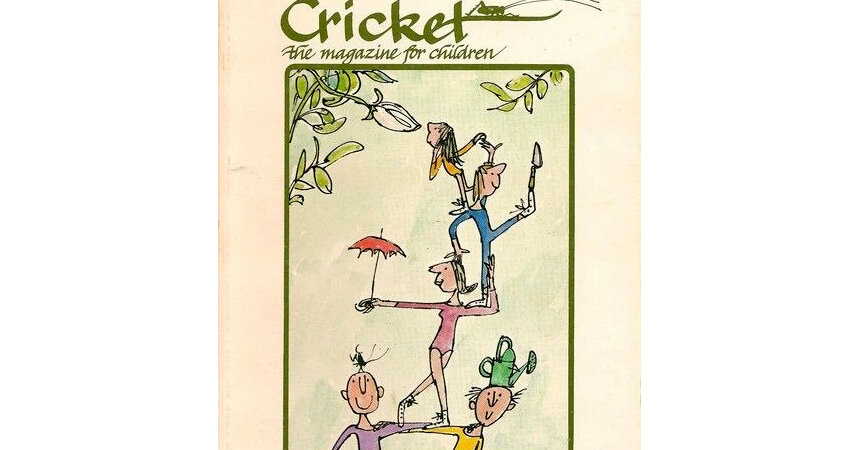A Love Letter to Cricket, the Bookish Child’s Bible

I first encountered Cricket, the literary magazine for children, at the home of my best friend, Elaine. Elaine was the most sophisticated child I knew. She always chose coffee ice cream. The tooth fairy brought her not crumpled dollar bills but smooth stones painted with miniature landscapes. She had traveled a lot, visiting family, and the Inwood apartment where she lived with her parents was filled with art and books and the smells of the elaborate meals her father cooked — the fact that he worked nights, and so was available to take us to museums after school, was itself glamorous. Even the apple juice they served us, in vividly painted Turkish tea glasses, tasted richer and finer than any I had ever tasted.
Cricket was beautiful. Its logo looked as if it had been painted by a calligraphy brush, moving from elegant but clear lettering into a delicate image of its namesake insect. The cover of the first issue I remember seeing featured a Margot Zemach illustration of a regal tiger reclining on a green bench; the back cover showed the equally regal back of his head. Inside were poems, stories, cartoons; work by Madhur Jaffrey and Hilary Knight — but also by other children, my age and younger.
After that, I started looking for Cricket at the library. I read it conscientiously, aware that it signified something about the kind of child I wanted to be. And when my birthday came, around five months later, I requested a subscription. My parents were happy to oblige. It was the first magazine I’d ever received in the mail. Each issue was a delight, a challenge — and slightly scary. These were thick, book-quality magazines, with volume numbers, to be treated not as disposable objects but as treasures. The title, I would learn, was a reference to an Isaac Bashevis Singer story in whicha cricket chirps continuously,“telling a story that would never end.”
I wasn’t allowed to read Highlights. I guess my mother didn’t think it was good literature. So I had to covertly mainline “Goofus and Gallant” at the dentist’s office, as I would later sneak the Baby-Sitters Club books. (Ranger Rick was for that alien species, animal kids.)
For those of us with literary or artistic pretensions — however amorphous — Cricket wasn’t just our best option; it was our only option.
I’ll admit it: I didn’t always keep on top of my Crickets. Sometimes schoolwork took precedence, or I became absorbed in a book that wasn’t “good literature” or in a Newbery-winning novel where a child experiences tragedy. Crickets would then accumulate in a reproachful stack — an early lesson in the pile-of-serious-magazine-induced guilt I’ve always felt needs its own German compound word.
